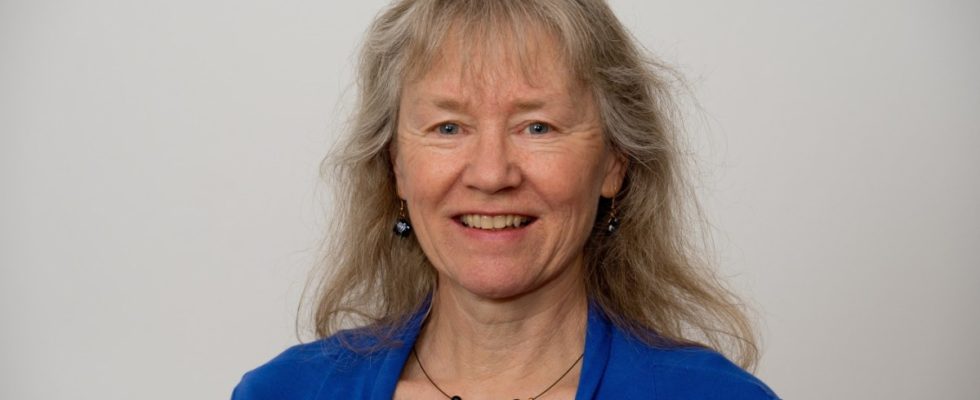It was a shock for Ruth Biller and her family when her daughter Judith suddenly collapsed and died after a soccer game while on vacation in Italy in 2011. The 14-year-old from Unterschleißheim had been completely healthy until then, everyone was convinced. Sudden cardiac death was suspected. How could that be? Mother Ruth Biller did not let go of the doubts. The gynecologist did her own research, persevered, and finally, after months of arduous odyssey, found out that her daughter had suffered from a rare genetic defect: arrhythmogenic right ventricular cardiomyopathy, ARVC for short, now also abbreviated to ACM for arrhythmogenic cardiomyopathy.
In this rare heart disease, heart muscle cells are replaced by fat and connective tissue. This leads to various functional disorders of the heart; Cardiac arrhythmias can occur, leading to unconsciousness and sudden cardiac death from ventricular fibrillation. In the long term, the pumping capacity of the heart can also suffer. However, the disease often goes undetected. “The insidious thing about ARVC is that many people have practically no symptoms for a long time or that they are so unspecific that doctors cannot classify them correctly,” says Biller. After all, the disease is rare and little known among medical professionals and laypeople alike. Biller has made it his mission to change that. After the death of her daughter, she started a self-help group for ARVC sufferers. This group – organized as an association with Biller as chairman since 2018 – is celebrating its tenth anniversary this year.
“We want to create an environment for those affected by these rare heart diseases in which they are better off than we were then, who felt completely alone,” says Biller, describing her motivation. On its website, the association has compiled detailed information about the diseases, current medical studies as well as practical tips on how to cope with everyday life with ARVC. Those affected can network via the self-help association and exchange their own experiences. A scientific advisory board made up of recognized medical specialists is available to answer medical questions. In addition, Biller and her colleagues support families in solving sudden cardiac deaths.
A defibrillator can save lives in an emergency. Several family members of doctor Ruth Biller have implanted a device.
(Photo: Toni Heigl)
The disease is mostly hereditary
Because what is particularly insidious about the disease is that ARVC or ACM are usually hereditary. This means that in many cases large parts of the family are affected, even if they do not yet know it. It was the same with the Biller family. When the suspicion of a genetic cause after Judith’s death was confirmed, parents, siblings and other relatives also had a genetic test carried out. As it turned out, Ruth Biller’s husband and her son also have ARVC, and a nephew also carries the genetic defect. Thanks to the knowledge, the disease could be treated; all three had a defibrillator implanted, which kicks in in an emergency and gets the heart going again. The device has already saved Biller’s nephew’s life twice.
However, for many sufferers it still takes years before their disease is recognized. “Frightening,” says Biller. “After all, early diagnosis is crucial for the course of the disease.” With the right diagnosis, medication can support the heart, and if the risk is high, a defibrillator can be implanted. But it is also important to adapt one’s own behavior, says Biller: “For example, you should definitely avoid certain heart-stressing sports, competitive sports.”
Biller takes the tenth anniversary of the ARVC self-help as an opportunity to gather doctors, patients and scientists in Munich. On Saturday, June 17th, lectures, panel discussions and other events on the various aspects of rare heart diseases will take place in the St. Vinzenz House of the Ludwig-Maximilians-University (admission is free, registration until June 11th via www.arvc-self-help.org). For the first time, the sponsors of the ARVC self-help grants will present their doctoral theses. “We want to use it to promote research and sensitize young medical professionals to the topic,” says Biller.
According to Biller, science and medicine are more aware of rare heart diseases. As early as June 16th, a medical training course at the LMU on the subject will take place in Munich. The woman from Unterschleißheim is also increasingly being invited to lectures as an expert, whether in Berlin, Frankfurt or Amsterdam. This international network is particularly important for rare diseases, says Biller. That is why she is also involved as Chair of the “European Patient Advocacy Group” in the European Reference Network for Rare Heart Diseases. She looks to the future with optimism. “I have the feeling that you can change something. And you can give people support.”

